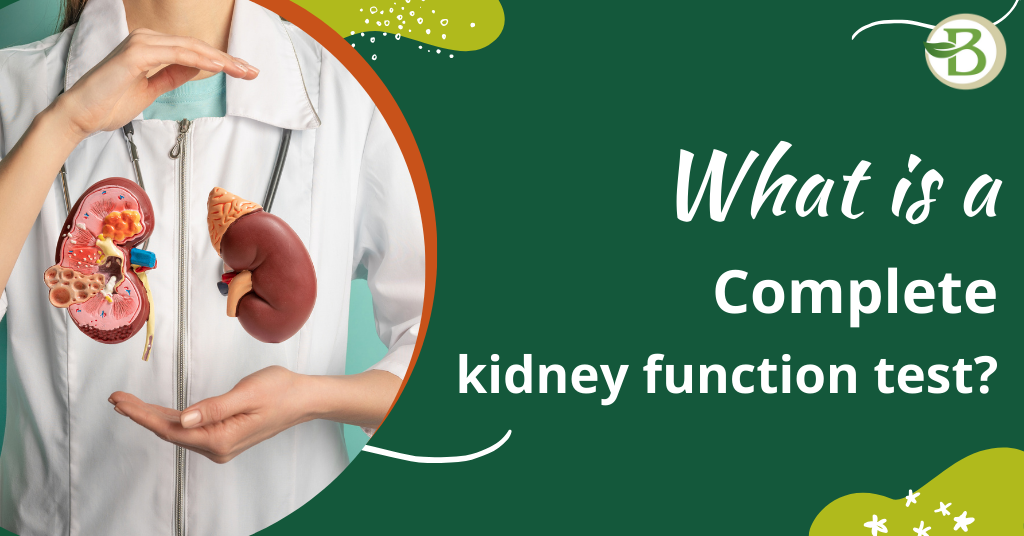Chronic Kidney Disease Tests
Each year, around 1.3 million individuals succumb to kidney disease. The widespread of chronic kidney disease is on the rise and at a concerning pace. It’s startling to learn that 40% of adults with serious kidney issues are unaware of their medical condition.
Diabetes and elevated blood pressure are the primary factors leading to kidney disease. About 1 out of 3 adults have diabetes, and about 1 in 5 adults with high blood pressure may have kidney disease. Individuals with heart conditions are at a higher risk for developing CKD. It’s important for people with any of these conditions to get regular kidney checkups to detect and address any issues early on. Early detection can help slow down or reverse renal disease. Dietary adjustments and medication can also help in kidney failure treatment without dialysis.
With that said, the information provided here acts as a brief overview of the various tests your medical professional may order to assess the condition of your kidneys.
Why might I need a kidney function test?
If you are diabetic, ensure to undergo annual check-ups. If you suffer from high blood pressure or heart disease, or have a family history of kidney failure, consult your healthcare provider to determine the frequency of your tests. The earlier you detect renal disease, the sooner you can receive treatment to safeguard your kidneys.
Complete test for Kidney functions
Chronic kidney disease (CKD) is assessed using two simple tests – a blood test called the estimated glomerular filtration rate (eGFR) and a urine test called the urine albumin-creatinine ratio (uACR). Both tests are necessary to obtain a comprehensive understanding of your renal health.
Blood tests for Kidney function
A blood test for renal disease measures the estimated glomerular filtration rate (eGFR) with the help of serum creatinine level or cystatin C level. Another method is the blood urea nitrogen (BUN) test.
1. What is the glomerular filtration rate?
The rate at which blood is filtered by the glomerulus in the kidney is referred to as the glomerular filtration rate (GFR). As renal function declines, the GFR decreases, leading to elevated levels of cystatin C and creatinine in the blood. These markers are commonly used to assess kidney function and overall health.
Serum creatinine level –
1. Creatinine arises in the body as a result of the normal breakdown of muscle tissue and the digestion of proteins from the diet. Typically, the kidneys remove this waste product from the body.
2. Having creatinine in the bloodstream is normal, but elevated levels could indicate potential renal function issues and require a high creatinine treatment.
3. There are no specific preparations needed before a creatinine blood test, but it’s advisable to ensure adequate hydration prior to the test.
4. Creatinine levels can vary for individuals depending upon their age, gender and other such factors, so there isn’t a standard normal value. However, a lower creatinine number is considered better.
Cystatin C level –
1. Cystatin C, a small protein produced by cells with a nucleus, is present in various body fluids, including blood.
2. It is continuously produced, filtered by the kidneys, and broken down at a consistent rate. The cystatin C test assesses kidney function by measuring the levels of cystatin C in the blood.
3. The cystatin C test does not necessitate fasting or specific preparation. It involves collecting a blood sample from a vein.
4. Contrary to the creatinine test, the cystatin C test is less common and more expensive. In this test, a lower value is considered better.
What do GFR results signify?
Your medical professional will carry out a blood test to examine the kidney damage. The test results signify the following:
1. A GFR above 60 falls within the normal range. Consult your healthcare provider regarding the next check-up for your GFR.
2. A GFR below 60 might suggest renal disease. Discuss with your healthcare provider the measures for maintaining kidney health at this level.
3. A GFR below 15 suggests renal failure. Discuss with your medical professional the possible treatment choices with them.
2. Blood urea nitrogen (BUN)
Urea nitrogen, a natural byproduct formed in the liver during the breakdown of specific proteins in the diet, is transported through the bloodstream to the kidneys, where most of it is filtered out, with only a small amount remaining. The body eliminates urea nitrogen when urinating.
Healthy kidneys effectively remove BUN, leaving only a minimal amount in the blood. However, if the kidneys are not functioning properly, they leave behind more BUN. The BUN blood test measures urea nitrogen levels, which can indicate potential issues with the liver or kidneys. Comparing BUN with creatinine and eGFR levels is more useful for assessing renal health.
Urine tests for Kidney function
Urine Examination
A urine examination is an easy procedure that examines a tiny portion of your urine for various substances. Initially, a visual inspection is performed to look for characteristics such as colour and foaminess of the urine. Next, a dipstick is used to detect abnormalities such as high amounts of acid, protein, bacteria, blood, pus, or sugar. Finally, the sample may be examined under a microscope for a more detailed analysis.
Urine albumin-creatinine ratio (uACR)
Albumin is a protein found in the blood. A urine albumin test checks for abnormal levels of this protein, which can indicate renal problems. The test methods include a urine dipstick, a one-time urine sample, and a 24-hour urine collection. It is used for screening, diagnosis, and tracking kidney disease progression and treatment effectiveness.
24-hour urine collection test
The 24-hour urine collection test is used for various reasons, such as kidney stones, glomerular disease, and measuring kidney function. It involves collecting all urine produced over a 24-hour period in a special container. This test is less common than other urine tests and is usually ordered as a next-step option if abnormal results are found through other testing methods or in uncommon clinical situations.
Diabetes and elevated blood pressure are the primary factors leading to kidney disease. Early detection can help slow down or reverse the disease. Chronic kidney disease (CKD) is assessed using two simple tests: the estimated glomerular filtration rate (eGFR) and the urine albumin-creatinine ratio (uACR). Both tests are necessary to obtain a comprehensive understanding of your renal health.
Follow Up
Gaining insight into kidney function tests is crucial as it enhances your health consciousness. Moreover, comprehending different kinds of tests, their mechanisms, and the implications of their outcomes will equip you with more information, simplifying your interactions with healthcare professionals. This, in turn, enables your doctor to tackle your health concerns properly, aiding in the maintenance of your kidney health.
Why Choose Bharat Homeopathy?
Bharat Homeopathy provides highly effective solutions for chronic kidney disease treatment, ranking as a preferred option for individuals looking for comprehensive and natural recovery. With extensive experience, we have effectively treated many patients, offering them comfort and an enhanced quality of life. Our medical professionals are committed to comprehending the distinct circumstances of each patient and customising a treatment strategy that meets their specific requirements and issues. The caring and supportive faculty at Bharat Homeopathy aims to establish a nurturing and therapeutic atmosphere for patients, assisting them in reaching their highest levels of health and wellness.


